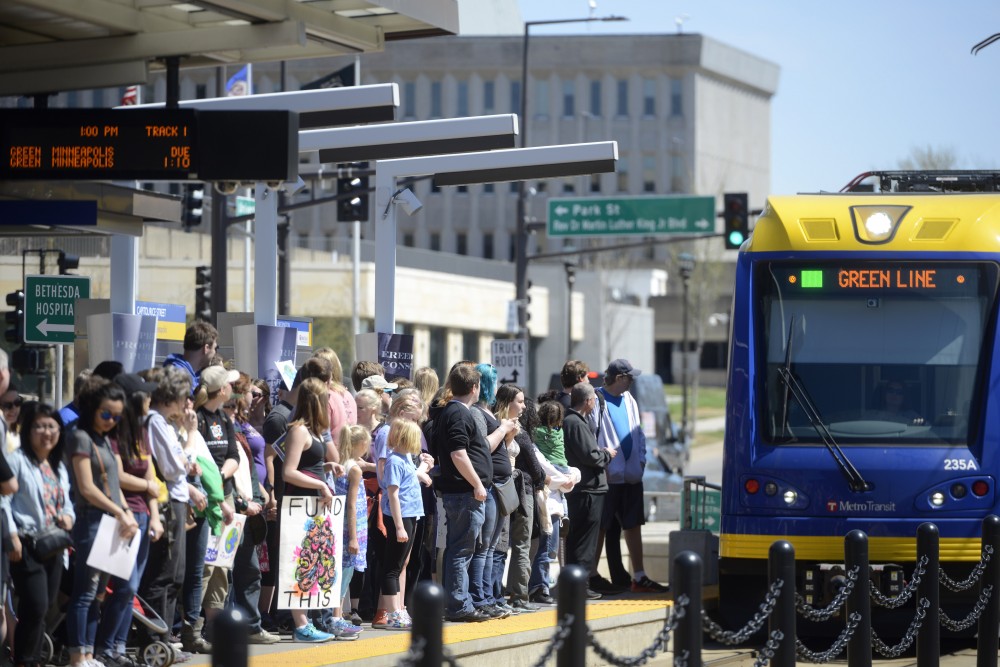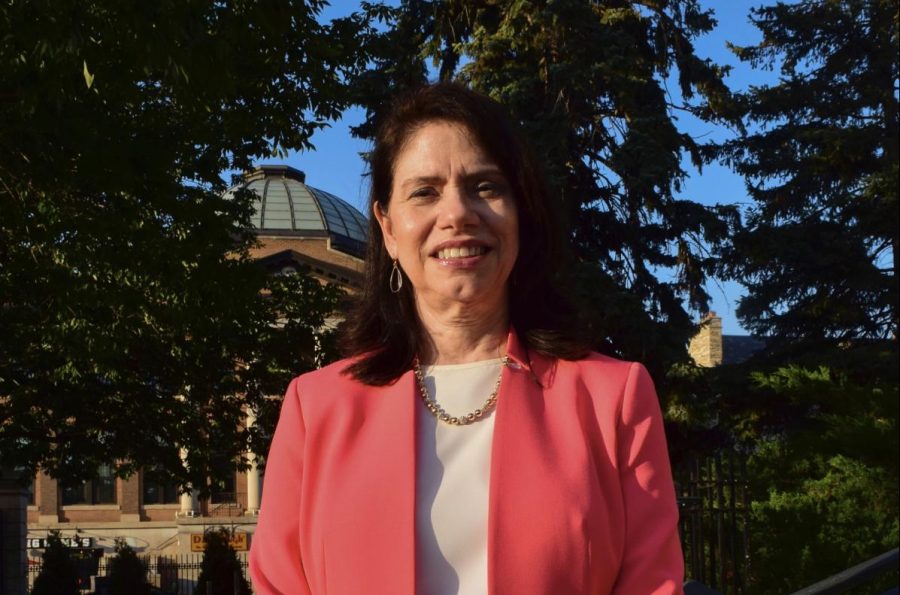Metro-area bus routes could be greatly reduced and fares increased by cuts to state funding.
A transportation finance bill in the State House of Representatives would grow the transit funding deficit to almost $140 million. If the bill passes, light rail expansion could stall, and 40 percent of bus routes could be cut. The Senate version of the bill would spur a 15 percent cut to bus routes.
John Schadl, a spokesperson for the Metropolitan Council, said transit hasn’t been well-funded for a while and currently receives $74 million less than what it would take to maintain current routes over the biennium.
A higher deficit would stop work on prospective light rail expansions, like the Southwest Light Rail Transit Project, a route from downtown Minneapolis to Eden Prairie. Cuts to bus routes would affect the whole metro area, including University of Minnesota routes, Schadl said.
Jacqueline Brudlos, spokesperson for the University’s Parking and Transportation Services, said it’s too early to gauge how cuts would affect the University community.
Many students and faculty rely on the U-pass and Metropass programs for transit, so reductions could affect their mobility, she said. But University shuttle and bus systems like the campus connector and campus circulator are run by the school and would not be impacted.

Any bus cuts would be made during the Met Council’s annual evaluation of transit routes. Usually, the council decides which services to keep or scrap before moving funds from dry routes to others. If the bill passes, the council won’t make any reinvestments, Schadl said.
He said the council is also considering a 25 or 50 cent increase in fares to compensate, but this would only raise $14 million dollars over the biennium. Raising fares could also hurt ridership.
Nina Grove, a University student, said bus cuts could jeopardize her routine. She uses metro buses three times a day, relying on them and light rail trains to get to class and work.
With fewer bus routes, her commute could increase by up to 30 minutes. She said infrequent service at night is already an issue, and increasing wait times could be dangerous in the winter.
Cassidy Valade, a first-year student, said her biggest worry is a possible increase in fares and a decrease in routes downtown. She depends on her U-pass for most transportation.
Rep. Paul Torkelson, R-Hanska, authored the House bill and said the proposed deficit is due to “uncertainty” surrounding transit. Unstable federal funding and the proposed disbandment of the Counties Transit Improvement Board complicates the topic.
Over 100 people have contacted Torkelson to voice their concerns, he said, adding that he can understand why they’re worried.
He said based on feedback from community members and commissioners, he doubts the bill will pass without serious changes.








